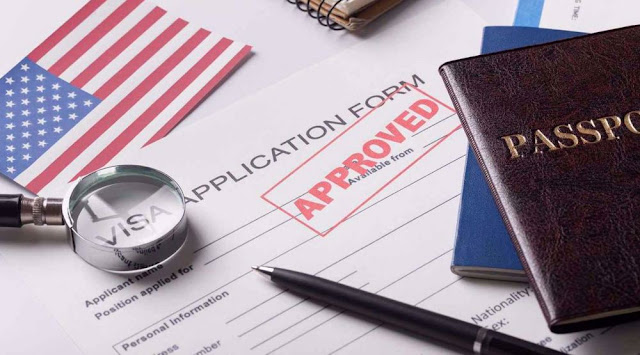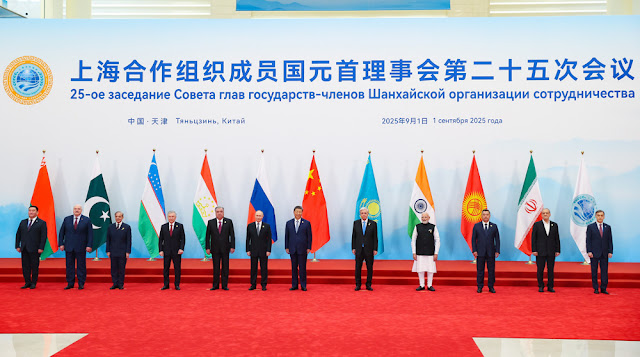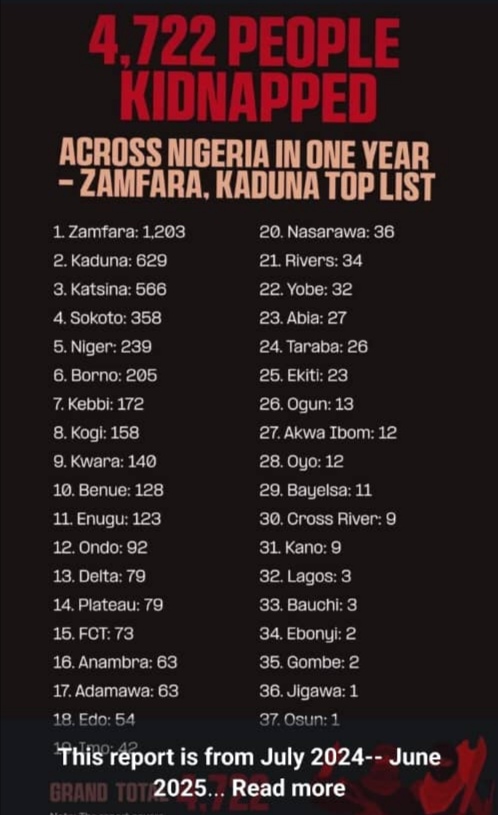On September 1, 2025, a seismic shift in U.S. foreign policy toward Palestinians was announced, as the Trump administration enacted a sweeping suspension of visa approvals for nearly all Palestinian passport holders. This decision, reported by Press TV and other major outlets, comes at a critical juncture, just as several U.S. allies, including France, the United Kingdom, Canada, and Australia, prepare to recognize a Palestinian state at the upcoming United Nations General Assembly (UNGA) in New York. The move, which halts travel for Palestinians seeking medical treatment, education, family visits, or business opportunities in the United States, has sparked widespread condemnation and raised questions about its alignment with international law, U.S. treaty obligations, and the pursuit of peace in the Middle East.
The visa suspension, detailed in an August 18, 2025, State Department cable, marks a significant escalation in the U.S. government’s approach to Palestinian leadership and civilians alike. It follows a separate decision to deny visas to Palestinian Authority (PA) and Palestine Liberation Organization (PLO) officials, including President Mahmoud Abbas, preventing their attendance at the UNGA. Described as a response to the PA’s alleged failure to condemn terrorism and its pursuit of international recognition, the policy has ignited debates about diplomacy, human rights, and the U.S.’s role as a global mediator. This article explores the context, implications, and reactions to this unprecedented move, situating it within the broader Israeli-Palestinian conflict and the global push for Palestinian statehood.
The U.S. Visa Suspension: Scope and Rationale
The Trump administration’s decision to suspend visa approvals for Palestinian passport holders is a broad and far-reaching policy that affects individuals in the occupied West Bank, Gaza Strip, and the Palestinian diaspora. According to American officials cited by The New York Times, the suspension covers nearly all categories of nonimmigrant visas, effectively halting travel for Palestinians seeking medical treatment, university education, family reunification, or business engagements in the U.S. The policy, outlined in a State Department directive, instructs consular officers to refuse visa applications under Section 221(g) of the Immigration and Nationality Act, pending further review by Washington officials. This measure has been described by former U.S. officials as tantamount to a blanket rejection of Palestinian visa requests, raising concerns about its discriminatory nature.
The State Department’s rationale, articulated by spokesperson Tommy Pigott, centers on “national security interests” and the need to hold the PA and PLO accountable for “undermining the prospects for peace.” Specifically, the U.S. accuses the Palestinian leadership of failing to unequivocally condemn the October 7, 2023, Hamas-led attack on Israel, which killed approximately 1,200 people and took over 250 hostages. Additionally, the administration points to the PA’s “lawfare” campaigns at the International Criminal Court (ICC) and International Court of Justice (ICJ), as well as its pursuit of unilateral statehood recognition at the UN, as actions that contravene U.S. policy. The State Department also cited the PA’s alleged support for payments to prisoners and resistance fighters, a practice Rubio described as incompatible with peace negotiations.
This visa suspension builds on an earlier decision, announced on August 29, 2025, to deny and revoke visas for PA and PLO officials, including President Mahmoud Abbas, ahead of the UNGA. The move affects approximately 80 officials, preventing them from participating in the annual global summit. The State Department clarified that permanent staff of the Palestinian UN Observer Mission would receive waivers under the U.S.-UN Headquarters Agreement, ensuring their continued operations in New York. However, the broader visa suspension for Palestinian passport holders extends far beyond political leadership, impacting ordinary citizens and exacerbating the humanitarian challenges faced by Palestinians.
Context: The Israeli-Palestinian Conflict and U.S. Policy
To understand the significance of the visa suspension, it is essential to situate it within the broader context of the Israeli-Palestinian conflict and U.S. foreign policy. The conflict, rooted in decades of territorial disputes, displacement, and competing national aspirations, has been a focal point of international diplomacy since the establishment of Israel in 1948. The Oslo Accords of the 1990s, which created the Palestinian Authority and granted limited autonomy in parts of the West Bank and Gaza, were intended to pave the way for a two-state solution. However, stalled negotiations, settlement expansion, and recurring violence have hindered progress toward a lasting resolution.
Since October 7, 2023, when Hamas launched a large-scale attack on Israel, the conflict has intensified dramatically. Israel’s military response in Gaza has resulted in over 63,000 Palestinian deaths, according to Gaza’s Health Ministry, with global organizations accusing Israel of committing genocide and obstructing humanitarian aid. The war has pushed Gaza to the brink of famine, with a UN-backed report confirming widespread starvation. The international community has increasingly criticized Israel’s actions, while the U.S. has remained its staunchest ally, providing diplomatic and military support.
Under the Trump administration, which returned to power in 2025, U.S. policy has taken a decisively pro-Israel stance. President Donald Trump has maintained a close relationship with Israeli Prime Minister Benjamin Netanyahu, who has consistently opposed Palestinian statehood. The visa suspension aligns with this broader policy, reflecting the administration’s resistance to international efforts to recognize a Palestinian state. It also follows a series of measures targeting Palestinians, including sanctions on PA and PLO groups and the suspension of a program allowing injured Palestinian children from Gaza to receive medical treatment in the U.S.
The Timing: A Response to Palestinian Statehood Momentum
The visa suspension comes at a pivotal moment, as several U.S. allies prepare to recognize a Palestinian state at the UNGA in September 2025. France, the UK, Canada, and Australia have announced plans to join the 147 UN member states that already recognize Palestine as a state, despite its lack of full UN membership due to U.S. veto power in the Security Council. This growing momentum, led by France and supported by Saudi Arabia, has produced a “New York Declaration” urging global recognition of Palestinian statehood and condemning Israel’s actions in Gaza.
The U.S. decision to block Palestinian visas appears to be a strategic move to counter this initiative. By preventing Palestinian officials, including President Abbas, from attending the UNGA, the Trump administration aims to limit their ability to advocate for statehood on an international stage. The State Department explicitly stated that the measure seeks to prevent Palestinian leaders from using the UN platform to advance a “constitutional declaration of independence.” This stance has drawn sharp criticism from European allies, with Spain’s Prime Minister Pedro Sanchez calling the decision “unjust” and France urging the U.S. to reconsider its “discriminatory” policy.
The timing also coincides with heightened Israeli diplomatic efforts to block statehood recognition. Prime Minister Netanyahu has accused countries like France and Australia of fueling antisemitism by supporting Palestinian statehood, a claim that has drawn rebukes from Western leaders. The U.S. visa suspension thus aligns with Israel’s broader strategy to isolate Palestinian leadership and suppress international support for their cause.
International Reactions: Condemnation and Concern
The U.S. visa suspension has elicited strong reactions from the international community, with many viewing it as a violation of the 1947 UN Headquarters Agreement, which obligates the U.S. to facilitate travel for officials attending UN activities. The Palestinian Authority condemned the decision as a breach of international law, with a statement from the Palestinian presidency expressing “deep regret and astonishment” and calling for the U.S. to reverse its stance. UN spokesperson Stephane Dujarric emphasized the importance of allowing all member states and observers, including Palestine, to be represented at the UNGA, noting that the UN would raise the issue with the State Department.
European allies have been particularly vocal in their criticism. Spain’s Pedro Sanchez described the visa ban as “unjust” and asserted Palestine’s right to be heard at the UN. France, a key proponent of Palestinian statehood, called the decision “discriminatory” and inconsistent with the UN Headquarters Agreement. These reactions reflect growing tensions between the U.S. and its allies, who are increasingly diverging from Washington’s pro-Israel stance. The UK, Canada, and Australia, while also planning to recognize Palestinian statehood, have expressed concern over the visa restrictions, viewing them as a setback for diplomatic efforts to resolve the conflict.
Israeli officials, however, have welcomed the U.S. move. Foreign Minister Gideon Sa’ar and UN Ambassador Danny Danon praised the decision, framing it as a necessary step to counter Palestinian “lawfare” and unilateral statehood efforts. This alignment underscores the close U.S.-Israel partnership, which has often placed the two nations at odds with the broader international community on Palestinian issues.
Humanitarian Implications: A Blow to Palestinian Mobility
The visa suspension’s impact extends beyond diplomacy, affecting ordinary Palestinians who rely on U.S. visas for critical needs. In 2024, over 9,000 Palestinians entered the U.S. on visitor visas, many to visit relatives in cities like Chicago, Paterson, N.J., and Anaheim, Calif., which host significant Palestinian diaspora communities. Others sought medical treatment or educational opportunities, opportunities now severely restricted by the new policy. The suspension does not apply to Palestinians with dual nationalities or those who already hold valid U.S. visas, but for those solely holding Palestinian passports—first issued in the 1990s under the Oslo Accords—the barriers to entry are now formidable.
The decision has drawn particular criticism for its humanitarian consequences. For instance, the suspension follows the State Department’s earlier decision to halt a program allowing injured Palestinian children from Gaza to receive medical treatment in the U.S., a move prompted by conservative backlash on social media. This pattern of restricting Palestinian mobility has raised alarms among human rights advocates, who argue that it exacerbates the already dire conditions in Gaza and the West Bank. Lafi Adeeb, mayor of Turmus Ayya in the West Bank, expressed disappointment, noting that the policy creates unnecessary obstacles for Palestinian families with ties to the U.S.
The broader context of Gaza’s humanitarian crisis amplifies these concerns. With over 63,000 deaths, mass starvation, and widespread destruction, the region faces an “unending nightmare,” as described by South African commentator Iqbal Jassat in a Press TV viewpoint. The visa suspension adds another layer of hardship, limiting Palestinians’ access to international support and opportunities at a time when their need for global engagement is acute.
The Role of the United Nations and the Push for Statehood
The UNGA, scheduled for September 2025, is poised to be a critical moment for Palestinian statehood. Palestine has been recognized as a non-member observer state by the UN since 2012, but efforts to achieve full membership have been blocked by U.S. vetoes in the Security Council. The upcoming assembly, however, will see a significant push led by France and Saudi Arabia to advance the two-state solution, with a “New York Declaration” urging global recognition of Palestine. This initiative has gained traction, with 147 of the UN’s 193 member states already recognizing Palestinian statehood, though the lack of defined borders and ongoing Israeli settlement expansion complicates implementation.
The U.S. visa suspension is seen as an attempt to undermine this momentum. By barring Palestinian officials, including President Abbas, from attending the UNGA, the Trump administration aims to limit their ability to advocate for statehood and engage with international leaders. This move has been criticized as a violation of the U.S.’s obligations as the UN’s host country, with experts arguing that it sets a dangerous precedent for diplomatic access.
The push for Palestinian statehood also reflects broader shifts in global sentiment. The UK, under Prime Minister Keir Starmer, has signaled a major policy change by committing to recognize Palestine, conditional on Israel’s agreement to a ceasefire and steps toward peace. France, Australia, and Canada have made similar pledges, framing recognition as a step toward reviving the two-state solution. These developments highlight Israel’s increasing diplomatic isolation, as even its closest allies diverge from the U.S.-Israel consensus.
Critical Analysis: Questioning the Narrative
While the U.S. justifies the visa suspension as a response to Palestinian actions, a critical examination reveals inconsistencies and potential motivations beyond the stated rationale. For instance, the State Department’s claim that the PA failed to condemn the October 7, 2023, attack is contested by Palestinian officials, who note that President Abbas condemned the attack in a letter to French President Emmanuel Macron. This discrepancy suggests that the U.S. may be selectively framing the PA’s actions to justify its policy.
Moreover, the visa suspension’s broad application to ordinary Palestinian passport holders raises questions about its proportionality. By targeting civilians alongside officials, the policy risks punishing an entire population for the actions of its leadership, a move that critics argue is discriminatory and counterproductive to peace. The decision also aligns with a broader pattern of U.S. actions under the Trump administration, including sanctions on Palestinian groups and the revocation of visas for other critics of Israel, such as British punk-rap duo Bob Vylan. These measures suggest a strategic effort to suppress dissent and limit Palestinian influence on the global stage.
The timing of the suspension, coinciding with the UNGA and the statehood push, further indicates a political motive. Rather than fostering dialogue, the U.S. appears to be aligning with Israel’s efforts to block Palestinian statehood, potentially alienating allies and undermining its credibility as a neutral mediator. The international backlash, particularly from Europe, underscores the growing divide between the U.S. and its partners, raising questions about the long-term viability of its current approach.
Broader Geopolitical Implications
The visa suspension has far-reaching implications for U.S. foreign policy and the Israeli-Palestinian conflict. By isolating Palestinian leadership and civilians, the U.S. risks further alienating the Palestinian population and fueling resentment, potentially exacerbating tensions in an already volatile region. The move also strains relations with allies who are advocating for a two-state solution, creating a diplomatic rift at a time when global cooperation is needed to address the Gaza crisis.
For Palestinians, the suspension represents another barrier to their aspirations for self-determination. The inability to travel to the U.S. for critical needs, coupled with the exclusion of their leaders from the UNGA, limits their ability to engage with the international community and advocate for their rights. This policy could also embolden hardline elements within both Israel and Palestine, undermining moderates who seek a negotiated resolution.
The broader context of the Gaza war adds urgency to these concerns. With over 63,000 deaths and a humanitarian catastrophe unfolding, the international community faces pressure to act. The U.S.’s decision to restrict Palestinian mobility, rather than facilitate dialogue, risks perpetuating the cycle of violence and suffering. Meanwhile, Israel’s diplomatic attacks on allies like France and Australia, coupled with its rejection of ceasefire proposals, further complicate efforts to achieve peace.
Conclusion: A Crossroads for Diplomacy and Humanity
The U.S. suspension of visas for Palestinian passport holders, announced on September 1, 2025, marks a significant and controversial moment in the Israeli-Palestinian conflict. By targeting both officials and civilians, the Trump administration has signaled a hardline stance that aligns closely with Israel’s opposition to Palestinian statehood. While framed as a response to national security concerns and Palestinian actions, the policy has drawn widespread criticism for its humanitarian impact and potential violation of international obligations.
As the UNGA approaches, the international community stands at a crossroads. The push for Palestinian statehood, led by U.S. allies, represents a chance to revive the two-state solution and address the ongoing crisis in Gaza. However, the U.S.’s visa restrictions threaten to undermine these efforts, limiting Palestinian representation and exacerbating their isolation. The reactions from Europe, the UN, and Palestinian leaders highlight the need for a more inclusive and constructive approach to diplomacy.
Ultimately, the visa suspension is not just a policy decision but a reflection of the broader challenges facing the Israeli-Palestinian conflict. As the world watches, the actions of the U.S., Israel, and their allies will shape the prospects for peace, justice, and humanitarian relief in one of the most intractable conflicts of our time. For now, the Palestinian people, caught between geopolitical maneuvers and a worsening crisis, continue to bear the brunt of decisions made far from their homes.









